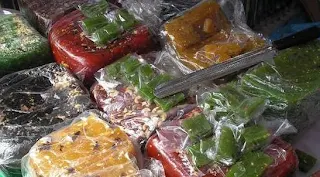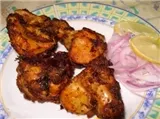Embark on a culinary journey into Kerala, "God's Own Country." This blog is your guide to authentic regional Kerala recipes, from vibrant curries to traditional sadhya dishes. Master unique flavors and share the true essence of Kerala cuisine with every homemade meal.
Tuesday, January 05, 2016
U.A.E Visa Rules , Dubai Visa Rules: Crowdfunding started to pave the way for Investors...
Sunday, June 08, 2014
Three days of fasting can renew your entire immune system
Fasting for as little as three days can regenerate the entire immune system, even in the elderly, scientists have found in a breakthrough described as “remarkable”.
Although fasting diets have been criticised by nutritionists for being unhealthy, new research suggests starving the body kick-starts stem cells into producing new white blood cells, which fight off infection.
Scientists at the University of Southern California say the discovery could be particularly beneficial for people suffering from damaged immune systems, such as cancer patients on chemotherapy.
It could also help the elderly whose immune system becomes less effective as they age, making it harder for them to fight off even common diseases.
The researchers say fasting “flips a regenerative switch” which prompts stem cells to create brand new white blood cells, essentially regenerating the entire immune system.
“It gives the ‘OK’ for stem cells to go ahead and begin proliferating and rebuild the entire system,” said Prof Valter Longo, Professor of Gerontology and the Biological Sciences at the University of California.
“And the good news is that the body got rid of the parts of the system that might be damaged or old, the inefficient parts, during the fasting.
“Now, if you start with a system heavily damaged by chemotherapy or ageing, fasting cycles can generate, literally, a new immune system.”
Prolonged fasting forces the body to use stores of glucose and fat but also breaks down a significant portion of white blood cells.
During each cycle of fasting, this depletion of white blood cells induces changes that trigger stem cell-based regeneration of new immune system cells.
In trials humans were asked to regularly fast for between two and four days over a six-month period.
Scientists found that prolonged fasting also reduced the enzyme PKA, which is linked to ageing and a hormone which increases cancer risk and tumour growth.
“We could not predict that prolonged fasting would have such a remarkable effect in promoting stem cell-based regeneration of the hematopoietic system,” added Prof Longo.
“When you starve, the system tries to save energy, and one of the things it can do to save energy is to recycle a lot of the immune cells that are not needed, especially those that may be damaged,” Dr Longo said.
“What we started noticing in both our human work and animal work is that the white blood cell count goes down with prolonged fasting. Then when you re-feed, the blood cells come back. So we started thinking, well, where does it come from?”
Fasting for 72 hours also protected cancer patients against the toxic impact of chemotherapy.
“While chemotherapy saves lives, it causes significant collateral damage to the immune system. The results of this study suggest that fasting may mitigate some of the harmful effects of chemotherapy,” said co-author Tanya Dorff, assistant professor of clinical medicine at the USC Norris Comprehensive Cancer Center and Hospital.
“More clinical studies are needed, and any such dietary intervention should be undertaken only under the guidance of a physician.”
“We are investigating the possibility that these effects are applicable to many different systems and organs, not just the immune system,” added Prof Longo.
However, some British experts were sceptical of the research.
Dr Graham Rook, emeritus professor of immunology at University College London, said the study sounded “improbable”.
Chris Mason, Professor of Regenerative Medicine at UCL, said: “There is some interesting data here. It sees that fasting reduces the number and size of cells and then re-feeding at 72 hours saw a rebound.
“That could be potentially useful because that is not such a long time that it would be terribly harmful to someone with cancer.
“But I think the most sensible way forward would be to synthesise this effect with drugs. I am not sure fasting is the best idea. People are better eating on a regular basis.”
Dr Longo added: “There is no evidence at all that fasting would be dangerous while there is strong evidence that it is beneficial.
“I have received emails from hundreds of cancer patients who have combined chemo with fasting, many with the assistance of the oncologists.
“Thus far the great majority have reported doing very well and only a few have reported some side effects including fainting and a temporary increase in liver markers. Clearly we need to finish the clinical trials, but it looks very promising.”
Monday, December 10, 2012
LEMON - 10,000 times stronger than Chemotherapy
hello!!! just want to share this good information
Read carefully & you be the judge
Lemon (Citrus ) is a miraculous product to kill cancer cells . It is 10,000 times stronger than chemotherapy Why do we not know about that? Because there are laboratories interested in making a synthetic version that will bring them huge profits.
 You can eat the fruit in different ways: you can eat
the pulp, juice press, prepare drinks, sorbets, pastries, etc...
You can eat the fruit in different ways: you can eat
the pulp, juice press, prepare drinks, sorbets, pastries, etc...including colon, breast, prostate, lung and pancreas The compounds of this tree showed 10,000 times better than the product Adriamycin, a drug normally used chemotherapeutic in the world, slowing the growth of cancer cells.
Institute of Health Sciences,
Monday, June 18, 2012
Fresh Vegetable Marinade
Serving size: 3/4 cup per serving
Ingredients
- 3 cups raw broccoli flowerets
- 3 cups cauliflower broken into flowerets
- 2 cups mushroom, sliced
- 1 cup green pepper, sliced
- 1 cup celery, sliced
- 1/2 cup sugar
- 2 teaspoons dry mustard
- 1/2 teaspoon salt
- 1/2 cup vinegar
- 1 cup olive oil
- 1/2 cup onion, finely chopped
- 1 tablespoon poppy seeds
Preparation
Cut broccoli and cauliflower into bite-sized pieces. Combine with mushrooms, pepper and celery.
In a separate bowl, combine remaining ingredients to make marinade. Mix well and pour over vegetables. Refrigerate at least 3 hours before serving.
Use a slotted spoon remove vegetables from marinade before serving.
Nutrients per serving*
- Calories: 174
- Protein: 2 g
- Carbohydrate: 10 g
- Fat: 14 g
- Cholesterol: 0 mg
- Sodium: 112 mg
- Potassium: 250 mg
- Phosphorus: 50 mg
- Calcium: 33 mg
- Fiber: 1.9 g
Recipe submitted by DaVita dietitian Joyce from Texas.
Tuesday, August 02, 2011
Chicken Pepper Fry -Ramadan Special
Ingredients:
For the Chicken:
- 1 kg chicken, cut into pieces
- 1/2 lemon, juiced
- 1/2 tsp turmeric powder
- 1/2 tsp black pepper powder
- 3/4 tsp salt
For the Masala:
- 3 tbsp coconut oil
- 2 medium onions, sliced
- 2 green chilies, slit
- 1.5 inch ginger, crushed
- 1 pod garlic, crushed
- 1 tsp whole black peppercorns (coarsely ground)
- 1/2 tsp fennel seeds (coarsely ground)
- 1/2 tsp turmeric powder
- 1/2 tsp coriander powder
- 1 tsp garam masala (optional)
- 1 tbsp coconut vinegar
- Salt to taste
Instructions:
Marinate the Chicken: In a bowl, combine the chicken pieces with lemon juice, turmeric powder, black pepper powder, and salt. Mix well and set aside for 10-15 minutes.
Prepare the Masala: Heat coconut oil in a pan or kadai. Add the onions and green chilies. Saute on medium heat until the onions are light golden brown.
Add the ginger, garlic, and curry leaves. Saute for another minute until fragrant.
Add the ground black peppercorns, fennel seeds, turmeric powder, coriander powder, and garam masala (if using). Stir well and cook for 2-3 minutes.
Pour in the coconut vinegar and season with salt to taste.
Cook the Chicken: Add the marinated chicken pieces to the pan and coat them well with the masala.
Cover the pan and cook on medium-low heat for 20-25 minutes, or until the chicken is cooked through and tender.
Uncover the pan and increase the heat slightly. Stir occasionally until the gravy thickens and oil starts to separate.
Tips:
- You can adjust the amount of black pepper according to your spice preference.
- For a richer flavor, use coconut milk instead of water. Add it after the chicken is cooked and simmer for a few minutes.
- This dish is traditionally served with steamed rice, parotta, or appam.
- During Ramadan, this dish can be enjoyed for Suhoor (pre-dawn meal) or Iftar (evening meal).
Ramadan Special Touch:
Since this is a recipe for Ramadan, you can add a few special touches:
- Dates: Finely chop a few dates and add them to the masala along with the spices. This will give the dish a hint of sweetness that complements the peppery flavor.
- Fried Shallots: Fry a handful of thinly sliced shallots until golden brown and crispy. Sprinkle them over the cooked chicken pepper fry for a bit of extra crunch and texture.
Enjoy this delicious and flavorful Kerala-style Chicken Pepper Fry during Ramadan!
Kerala Beef Fry recipe -Ramadan Special
Ramadan special -Beef Ularthiyathu
Nombu Kanji - Ramadan special Recipe
- Lamb or beef(minced) – ½ cup
- Broken rice – 2 small cups (soaked in water and later drained)
- Green gram(Cheruparipppu) – ½ cup (soaked in water and later drained)
- Vegetables(chopped) – 1 cup
- Onion(medium) – 2 nos (thinly sliced)
- Tomato(medium) – 1 no (finely chopped)
- Green chillies – 2 - 3 nos
- Ginger-garlic paste – 1 tsp
- Turmeric powder – ½ tsp
- Chilly powder – 1 tsp
- Cumin seeds(Jeerakam) – ½ tsp
- Coconut – ½ no
- Cinnamon(Karugapatta) sticks – 1 – 2 nos
- Cloves(Grambu) – 3 - 4 nos
- Salt – As reqd
- Coriander leaves(chopped) – A little
- Mint leaves – A few
- Ghee/oil – 1 – 2 tbsp
Monday, July 04, 2011
Natural Benefits and Curative Properties of Barley
Cranberry juice-The health enhancing benefit
Tuesday, May 17, 2011
Traditional Kozhikode Halwa
 Kozhikode/Calicut has an entire street with stores selling colourful Halwa. Locally called Aluva, it is a made from flour, sugar and lot of stirring to a sticky/rubbery consistency and the mouth-watering smell of cooked sugar and coconut oil. This is the traditional way of making it.
Kozhikode/Calicut has an entire street with stores selling colourful Halwa. Locally called Aluva, it is a made from flour, sugar and lot of stirring to a sticky/rubbery consistency and the mouth-watering smell of cooked sugar and coconut oil. This is the traditional way of making it.















